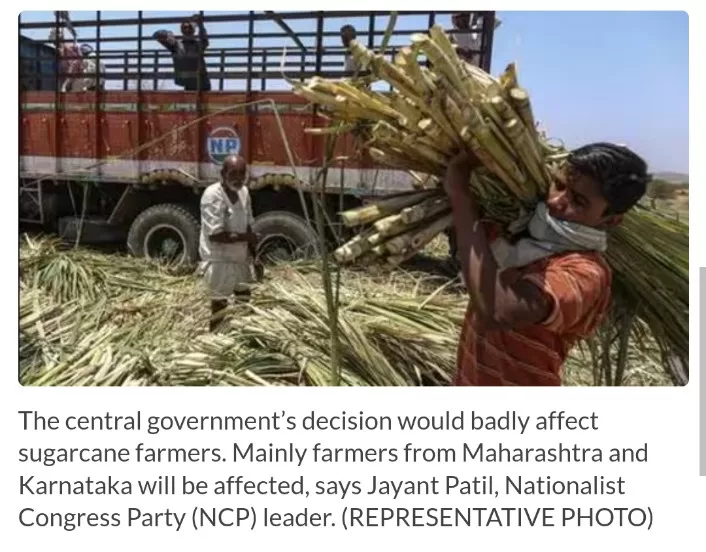The Centre has prohibited the use of ‘sugarcane juice and sugar syrup’ for ethanol production in the ongoing supply year, aiming to ensure ample sugar availability for domestic use. Concerns arise over potential losses to sugarcane growers, prompting Maharashtra minister Dilip Walse Patil to announce a state delegation’s meeting with Union Minister for Cooperatives Amit Shah.
Walse Patil stated in Nagpur, “A team of ministers will soon meet Amit Shah in Delhi to discuss the issue.” The decision, affecting mainly Maharashtra and Karnataka farmers, has sparked criticism. Sugar industry bodies plan to appeal to Prime Minister Narendra Modi and Home Minister Amit Shah, suggesting alternatives such as importing sugar and subsidizing the price difference.
While the ban excludes sugarcane juice, ‘B-molasses’ use for ethanol production in the 2023-24 period is permitted, welcomed by sugar industry representatives. Shekhar Gaikwad, sugar commissioner, emphasized Maharashtra and Karnataka as major ethanol producers and speculated on potential shifts towards ethanol blending from food grains.
The Food Ministry directed sugar mills and distillers to refrain from using sugarcane juice/sugar syrup for ethanol production during the ongoing supply year. The decision aligns with expectations of decreased sugar production in the current marketing year.
Nationalist Congress Party (NCP) leader Jayant Patil expressed concern, stating, “The central government’s decision would badly affect sugarcane farmers. Mainly farmers from Maharashtra and Karnataka will be affected. We are requesting the central government to revise the decision.”
A senior IAS officer, close to ethanol production and the oil industry, suggested that the decision aims to control market sentiments and sugar prices, possibly influenced by upcoming elections.






